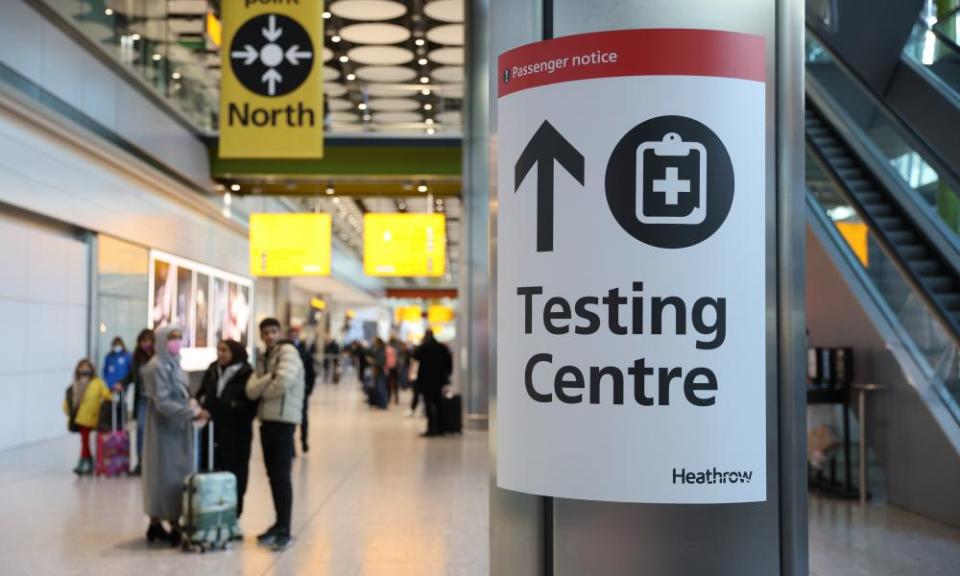Omicron Covid cases ‘doubling every two to three days’ in UK, says scientist

The spread of the Omicron variant of coronavirus appears to be doubling every two to three days, Prof Neil Ferguson has said, adding that it could be necessary to impose new lockdowns as a result.
Ferguson, a member of the UK government’s Scientific Advisory Group for Emergencies (Sage) and head of the disease outbreak modelling group at Imperial College London, told BBC Radio 4’s Today programme on Wednesday that Omicron was likely to be the dominant strain in the UK before Christmas.
“It’s likely to overtake Delta before Christmas at this rate, precisely when is hard to say,” Ferguson said, speaking in a personal capacity.
“We’ll start seeing an impact on overall case numbers – it’s still probably only 2%, 3% of all cases so it’s kind of swamped, but within a week or two we’ll start seeing overall case numbers accelerate quite markedly as well.”
He said so far case numbers were particularly high in London and Scotland. “London is to be expected because that’s where most of our foreign visitors come,” he added. He said it was less clear why it had spread more quickly in Scotland but speculated that it could be linked with the Cop26 summit in Glasgow.
default
The number of cases of the original Omicron variant detected in the UK rose by 101 to 437 on Tuesday as Scotland announced a return to working from home.
Regarding lockdowns, Ferguson said it was difficult to rule out anything, adding that we “haven’t got a good enough handle on the threat”.
He added: “Clearly, if the consensus is it is highly likely that the NHS is simply going to be overwhelmed then it will be for the government to decide what what he wants to do about that, but it’s a difficult situation to be in of course.”
Pushed on whether lockdowns might be possible, he said: “It certainly might be possible at the current time.”
He also noted preliminary work in the UK that suggests that two doses of Pfizer are roughly half as protective against mild disease as against other variants. But he said: “We think that protection against severe disease is much more likely to be maintained at the high level, but we don’t have firm data on that. That’s just based on extrapolation from past experience.”
Ferguson called the pace of Omicron’s growth “very fast”, saying: “It’s the same if not faster than we saw with the original strain of the virus in March last year, so it is a concern.”
He said data on the evasion of vaccines was preliminary but pointed to a study in South Africa that said “this virus Omicron can evade immunity antibodies generated against the very original Chinese strain of the virus better than any variant we’ve seen so far”.
Lockdowns or other restrictions could help to protect people from infection and gather information, Ferguson said. “There is a rationale, just epidemiologically, to try and slow this down, to buy us more time principally to get boosters into people’s arms because we do think people who are boosted will have the best level of protection possible, but also to buy us more time to really better characterise the threat.
“So if you imagine a kind of plan B plus with working from home might slow it down – it wouldn’t stop it but it could slow it down, so it’s doubling rather than every two or three days, every five or six days.
“That doesn’t seem like a lot, but it actually is potentially a lot in terms of allowing us to characterise this virus better and boost population immunity.”
Ferguson said the “key question” of whether the UK decided to attempt to slow the spread of Omicron would “critically depend on really the threat it poses in terms of hospitalisations. At the moment we don’t really have a good handle on the severity of this virus.
“There’s a little hint in the UK data that infections are a little bit more likely to be asymptomatic. But we really need to firm up that evidence at the current time.”

 Yahoo Movies
Yahoo Movies 